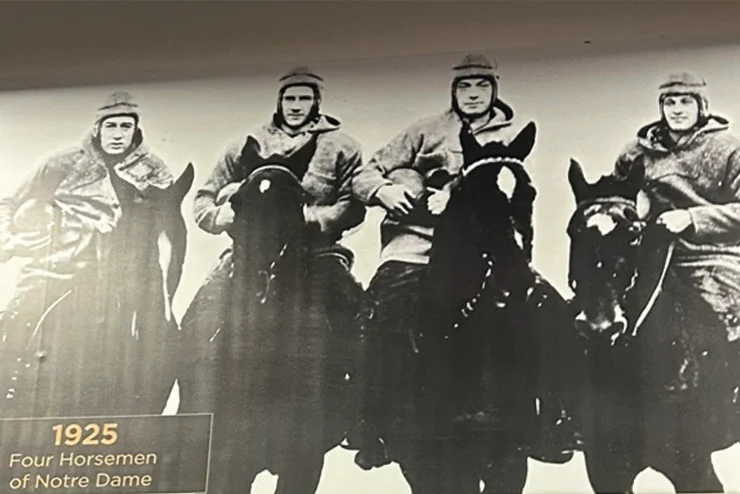Before the election, one could feel a sense of dread among American conservatives. Many worried that if Donald Trump lost, it would mark the end of something: of American conservatism, of America, or even of the world. I was not immune. For the first time, I did not dismiss out of hand talk of the Second Coming.
If nothing else, Trump’s decisive victory dispelled such fears. (And the fears were, at least, genuine. Unlike those of the talking heads who repeatedly insisted that Trump was Hitler. If they had been sincere, they’d be scrambling to leave America, not waiting to be sent to the new Dachau.)
But Trump’s election did more than quell conservative fears for a time. It gave Americans who think America’s heritage remains at risk the time and latitude we need to work on Plan B.
It is the task of Trump and JD Vance to break the power wielded by the unelected, unaccountable, and heretofore untouched cabal that has used every resource at its disposal to quash the threat posed by Donald Trump to the globalist status quo since 2015.
As most Americans at least intuit, the cabal does not have their best interests at heart. Alas, D.C. sinecures for people eager to put America last and keep her there are very lucrative and usually last for life. Overcoming the cabal requires detailed knowledge of D.C. Aside from voting for Trump in 2024 and for Vance in 2028 and 2032, there’s little most of us can do in that battle.
Our task is not to destroy the cabal’s narrative at its source but to create or retake institutions and networks so we are free to proclaim the truth and be under no compulsion to propagate lies. We need to convince our fellow Americans that we’ve been falsely portrayed by the cabal’s narrative. Finally, we need to prepare our institutions and networks to withstand the retribution that will be unleashed if Trump and Vance fail.
Events of a century ago suggest the best place to ride out the storm would be in autonomous institutions rooted in and protecting deep religious commitments. In 1925, the United States Supreme Court struck down an Oregon law requiring all students—with a few minor exceptions not relevant to the disposition of the case—to attend public school. The Oregon Compulsory Education Act of 1922 was backed by the winning Democratic gubernatorial candidate, Walter Pierce, and enacted by a slim majority in a referendum. The law’s principal target was Catholic schools, of the type that educated such subversives as Pat Buchanan, Bing Crosby (in neighboring Washington), and my parents in faraway Cleveland and Youngstown, Ohio. An order of nuns that had been teaching children in Oregon since 1859, the Society of Sisters of the Holy Names of Jesus and Mary, sought and obtained a permanent injunction against the law in 1923.
The resulting Supreme Court decision, Pierce vs. Society of Sisters, has been described by homeschooling advocate John Tuma as “the foundation upon which homeschooling rights were built.” The author of the Court’s decision, Justice James Clark McReynolds, was uncharacteristically eloquent:
The child is not the mere creature of the State; those who nurture him and direct his destiny have the right, coupled with the high duty, to recognize and prepare him for additional obligations.
McReynolds later became the leader of what the press called the “Four Horsemen,” the four Supreme Court justices implacably opposed to the New Deal. Although the Four Horsemen ultimately failed to stop FDR from rewriting the Constitution, another of their number, Pierce Butler, best illustrates the enduring value of implacable opposition to evil. Butler, the Court’s only Catholic, was the only dissenter from the Court’s infamous decision in Buck v. Bell, which upheld a Virginia law giving the state the right to sterilize certain people against their will. Oliver Wendell Holmes got to rhapsodize about eugenics—“Three generations of imbeciles are enough”—but it is Holmes, not Butler, who bears the shame of having his decision cited by Nazi war criminals as justifying their actions.
Just a couple years after the passage of Oregon’s tyrannical law, another Four Horsemen gave it a stunning rebuke. These were the four Catholic students who led Coach Knute Rockne’s 1924 Notre Dame “Fighting Irish” football team to win that year’s national championship in dominant fashion. The students known as the Four Horsemen were mobbed by adoring fans wherever they went, and their success made Oregon’s bias unthinkable.
I certainly want Trump and Vance to succeed. But if they don’t, I hope we have as many of our own Four Horsemen as we need to stave off Conquest, War, Famine, and Death. ◆

Leave a Reply